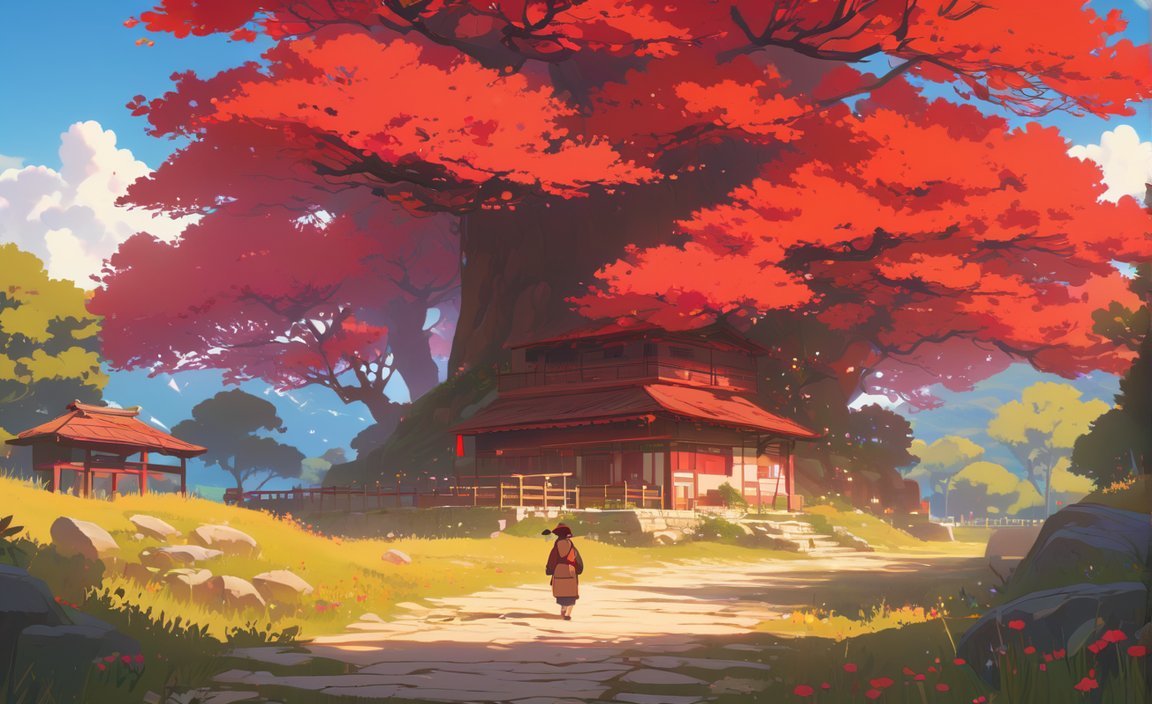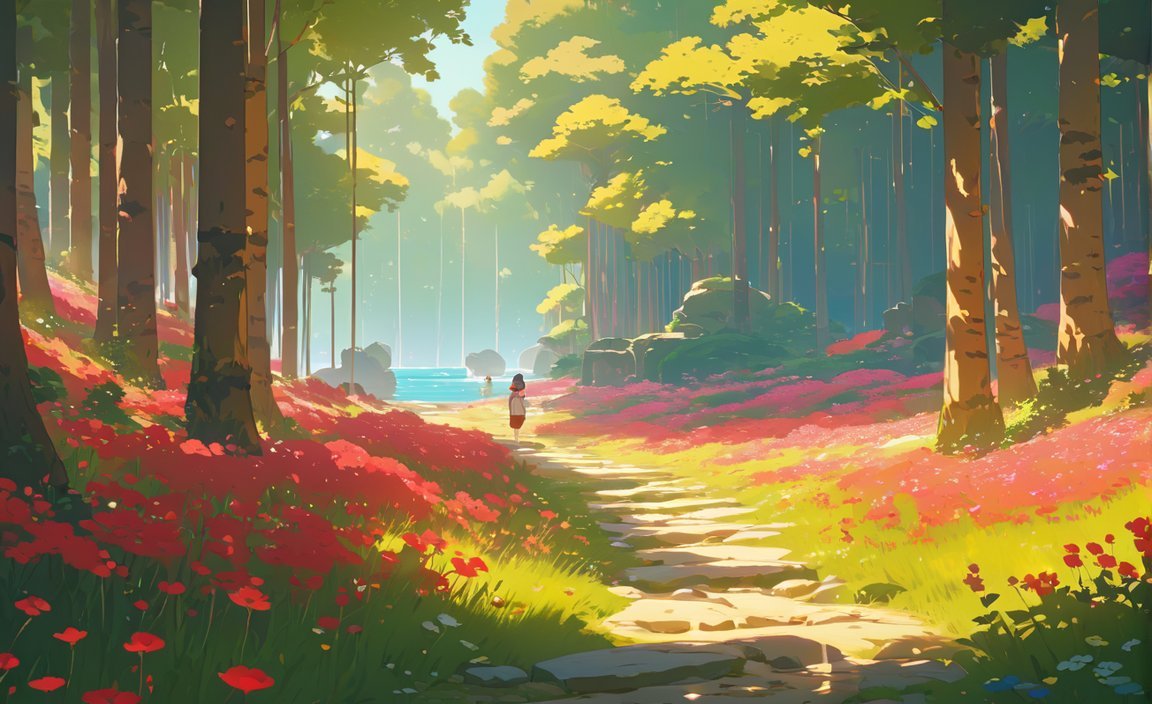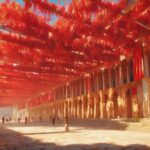Discover Fascinating Albania: Fun Facts Unearthed. More Albanians live abroad than in Albania, making it a country with a widespread diaspora. The majority of Albanians practice Islam, contributing to Albania’s rich religious diversity. Coffee culture runs deep in the veins of Albanians, with a strong tradition of sipping aromatic brews. Additionally, the Albanian language stands out as a unique entity in the linguistic world. Join us as we delve into the captivating world of Albania, where history, culture, and stunning landscapes await.

Key Takeaways:
– People in the southern part of Albania have a preference for eating frog legs.
– More Albanians live outside the country than within it.
– It is considered a form of good luck if a baby pees on you in Albania.
– The locals have an official evening walk called xhiro, which serves as a socializing and relaxation activity.
– The Albanian gesture for agreement is shaking the head, while nodding represents disagreement.
– Mother Teresa, originally from Skopje, North Macedonia, is widely regarded as a heroine in Albania.
– Albania became the world’s first atheist state in 1967, prohibiting all religions.
– Albania is home to tens of thousands of unused military bunkers constructed by the communist regime for defense against foreign invasion.
Albania Fun Facts
Albania, a hidden gem nestled in the heart of the Balkans, has a treasure trove of intriguing and surprising facts waiting to be discovered. From unique cultural traditions to astonishing historical anecdotes, let’s unravel some fascinating fun facts about this captivating country.
Albania: A Culinary Adventure
When exploring Albanian cuisine, prepare for some unexpected culinary delights. In the southern part of the country, locals have a particular fondness for frog legs, considering them a tasty delicacy. This unusual preference showcases the diverse and adventurous nature of Albanian gastronomy.
A Diaspora Nation
Did you know that there are more Albanians living outside the country than within it? Albanians have dispersed across the globe, forming vibrant communities in various countries. This global presence highlights their resilience, adaptability, and strong cultural identity, which they proudly carry wherever they go.
A Unique Sign of Good Luck
In Albania, an unexpected gesture holds a special meaning. It is believed to bring good luck if a baby pees on you. Although it may seem peculiar, this tradition illustrates the connection between Albanians and their belief in superstitions and omens.
The Xhiro: A Social Ritual
In Albania, locals have a remarkable tradition called the “xhiro.” This evening walk provides an official avenue for socializing and relaxation. As the sun sets, people gather in the streets, strolling and engaging in lively conversations. The xhiro reflects the warmth and conviviality ingrained in Albanian culture.
Nodding and Shaking Heads: A Unique Communication Style
Albanians have a distinct way of expressing agreement and disagreement. Contrary to what might be expected, when an Albanian agrees with you, they shake their head. Conversely, when they disagree, they nod. This unconventional communication style can lead to amusing and engaging interactions with the locals.
Mother Teresa: Albania’s Beloved Heroine
While Mother Teresa, the revered humanitarian, was born in Skopje, North Macedonia, she holds a special place in the hearts of Albanians. Considered Albania’s heroine, she embodied the country’s values of compassion, generosity, and selflessness. Her legacy continues to inspire Albanians and the world.
The World’s First Atheist State
In a surprising turn of events, Albania became the first atheist state in the world in 1967, under the rule of its communist regime. All religions were banned during this time, with churches and mosques converted to secular purposes. This period marked an unprecedented chapter in Albania’s history.
Bunkers: A Relic of the Past
As a testament to its unique past, Albania is dotted with tens of thousands of unused military bunkers. These structures were built by the communist regime as a defense against foreign invasion, but they now serve as eerie reminders of a bygone era. The bunkers offer a glimpse into Albania’s history and the challenges it has faced.
These fascinating fun facts shine a light on the captivating aspects of Albania, inviting you to explore its rich heritage, picturesque landscapes, and remarkable people. Whether venturing into Albanian cuisine or immersing yourself in their intriguing traditions, Albania promises to be a treasure trove of unique experiences.
Sources:
Ten fun facts about Albania – 10 facts about
26 interesting facts about Albania – The Facts Institute
Here are some captivating sentences with active internal links:
- Did you know that India is home to numerous fascinating attractions? Check out these fun facts for India and discover more about this incredible country. Fun facts for India
- If you’re curious about India’s rich cultural heritage and diverse traditions, you’ll love these fun facts on India. Join us on a journey to explore the mesmerizing aspects of this captivating country. Fun facts on India
- Prepare to be amazed by the incredible wonders of India! From ancient history to modern achievements, these cool facts about India will leave you in awe. Don’t miss out on this opportunity to expand your knowledge. Cool facts about India
- Looking for an interesting fact about India to share with your friends? You’re in the right place! Uncover the lesser-known side of this vibrant nation and be prepared to be surprised. Interesting fact about India
- Get ready to delve into the world of fun Indian facts that will take you on a rollercoaster ride through its rich history, culture, and traditions. Embark on this exciting journey with us and uncover the hidden gems of India. Fun Indian facts
- Expand your knowledge beyond boundaries! Discover the incredible UK fun facts that will leave you astounded and inspired. Prepare to be captivated by the uniqueness and diversity of this fascinating country. UK fun facts
Albanians Love Coffee
Albanians have a deep and passionate love affair with coffee. It is a part of their daily routine, a symbol of hospitality, and a way to forge connections with others. The coffee culture in Albania is truly unique, and it is worth delving into the fascinating facts surrounding this beloved beverage.
Coffeehouses Galore
Albania boasts an impressive number of coffeehouses, with an estimated 18,000 scattered across the country. This abundance of coffeehouses is a testament to the Albanians’ love for coffee and their inclination to socialize over a cup of joe. In fact, Albania holds the world record for the highest number of coffeehouses per capita, with 654 coffeehouses for every 100,000 inhabitants. It’s safe to say that coffee is deeply ingrained in Albanian culture.
A Tradition Rooted in History
The love for coffee in Albania has roots that stretch back centuries. It is believed to have been introduced by the Ottoman Empire during its rule over the region. Turkish coffee, a method of brewing coffee that involves boiling finely ground beans, is particularly popular in Albania. This brewing method imparts a rich and intense flavor that adds to the allure of Albanian coffee culture.
More than a Beverage
For Albanians, coffee is not just a drink but a way to create and foster relationships. It serves as a meeting point for friends and family, a space for deep conversations and shared moments. The ritual of drinking coffee is taken seriously in Albania, with each step of the process, from grinding the beans to serving the coffee, done with care and attention to detail. The love for coffee runs so deep that Albanian youth are known to spend around 10% of their income on this cherished beverage.
No Room for Starbucks
Despite the global presence of Starbucks, you won’t find a franchise in Albania. The country’s coffee market is highly competitive, with a myriad of local cafes offering high-quality coffee at affordable prices. Albanians have developed a strong loyalty to their local coffeehouses, which has made it difficult for international coffee chains to establish a foothold. So, when in Albania, be sure to indulge in the local coffee scene and savor the unique flavors it has to offer.
Key Takeaways:
– Albania has a rich coffee culture, with an estimated 18,000 coffeehouses in the country.
– Coffee is an integral part of Albanian culture, serving as a meeting point and a way to create relationships.
– Albanians have a strong affinity for Turkish coffee, which was introduced during the Ottoman Empire.
– Albania holds the world record for the highest number of coffeehouses per capita.
– Despite its global presence, Starbucks has not established a franchise in Albania due to strong competition and low prices in the local coffee market.
Sources:
– A guide to Albania’s coffee culture – Breathe in Travel
– 13 Facts About Albania You Didn’t Know – Anita Hendrieka
The Albanian Language Is Unique
1. Independent and Ancient Roots: The Albanian language proudly stands as an independent branch of the Indo-European language family. Unlike many other languages that belong to language groups, Albanian stands alone, making it truly unique. It can trace its ancient roots back to ancient Illyria, making it one of the oldest languages in Europe. [^1^] [^2^]
2. Widespread Speakers: With approximately six million native Albanian speakers in the Balkans and an additional one and a half million native speakers worldwide, the Albanian language is not only distinctive but also widely spoken. Its importance and influence are evident in its widespread usage.
3. Two Major Dialects, One Language: Albanian boasts two major spoken dialects: Tosk and Gheg. These dialects may have some differences in pronunciation and vocabulary, but they are mutually intelligible, uniting Albanian speakers across the country and beyond.
4. Evolution and Standardization: While the Albanian language has ancient origins, it has only existed in its current form since the 15th century. Since 1969, the Tosk dialect has been established as the official standard dialect, ensuring linguistic consistency and effective communication among speakers.
5. Topographical Influences: The Albanian language has absorbed influences from the various topographical features of the country. Mountainous regions have contributed unique vocabulary, while coastal areas have brought influences from neighboring nations, resulting in a rich tapestry of linguistic diversity.
6. Grammar Like No Other: Albanian’s grammar sets it apart from other Indo-European languages. It features a complex system of noun declensions and verb conjugations, presenting fascinating linguistic challenges for non-native speakers. Its uniqueness adds to the allure of mastering this distinctive language.
7. Cultural Preservation: The Albanian language plays a significant role in preserving the cultural identity of the Albanian people. It serves as a powerful vehicle for expressing traditions, customs, and collective memory, fostering cultural pride and cohesion.
8. Storied Influence: The Albanian language holds regional significance, being the official language of both Albania and Kosovo. Additionally, minority populations in North Macedonia, Montenegro, and Serbia also speak Albanian, highlighting its influence and importance in the Balkans.
9. Linguistic Curiosity: Linguists and language enthusiasts from around the world are captivated by the Albanian language. Its rich history, distinct grammar, and unique vocabulary make it a fascinating linguistic enigma, fueling a desire to understand and unravel its mysteries.
10. Continual Adaptation: As a living language, Albanian continues to adapt and evolve, reflecting the dynamic nature of language and its ability to respond to cultural and sociopolitical changes. It remains a testament to the resilience and vitality of the Albanian people.
Key Takeaways:
– The Albanian language is an independent branch of the Indo-European language family, making it unique among other languages.
– It has ancient roots dating back to ancient Illyria, making it one of the oldest languages in Europe.
– Albanian has two major dialects, Tosk and Gheg, which are mutually intelligible.
– The official standard dialect since 1969 has been Tosk, ensuring linguistic consistency.
– Albanian’s grammar is distinct from other Indo-European languages, featuring complex noun declensions and verb conjugations.
– The Albanian language holds regional influence as the official language of Albania and Kosovo, with speakers in other Balkan countries.
– The language continues to evolve and adapt to reflect cultural and sociopolitical changes.

FAQ
Q1: Is it true that more Albanians live abroad than in Albania?
A1: Yes, it is true. More Albanians live outside the country than within it, reflecting the global diaspora of the Albanian population. (source)
Q2: What is the predominant religion among Albanians?
A2: The majority of Albanians are Muslims, making Islam the predominant religion in Albania. (source)
Q3: How much do Albanians love coffee?
A3: Albanians have a strong love for coffee, with an estimated 18,000 coffeehouses in the country. Coffee is an integral part of Albanian culture, with the country boasting the highest number of coffeehouses per capita. Albanian youth even spend around 10% of their income on coffee. (source)
Q4: What makes the Albanian language unique?
A4: The Albanian language is unique as it is not closely related to any other language, making it an independent branch of the Indo-European language family. It has a distinct grammar, rich vocabulary influenced by various languages, and a complex system of noun declensions and verb conjugations. (source)
Q5: How widespread is the Albanian language?
A5: The Albanian language is spoken by approximately six million native speakers in the Balkans and an additional one and a half million native speakers worldwide. It is the official language of Albania and Kosovo, and spoken by minority populations in North Macedonia, Montenegro, and Serbia. (source)
- China II Review: Delicious Food & Speedy Service - April 17, 2025
- Understand Virginia’s Flag: History & Debate - April 17, 2025
- Explore Long Island’s Map: Unique Regions & Insights - April 17, 2025
















